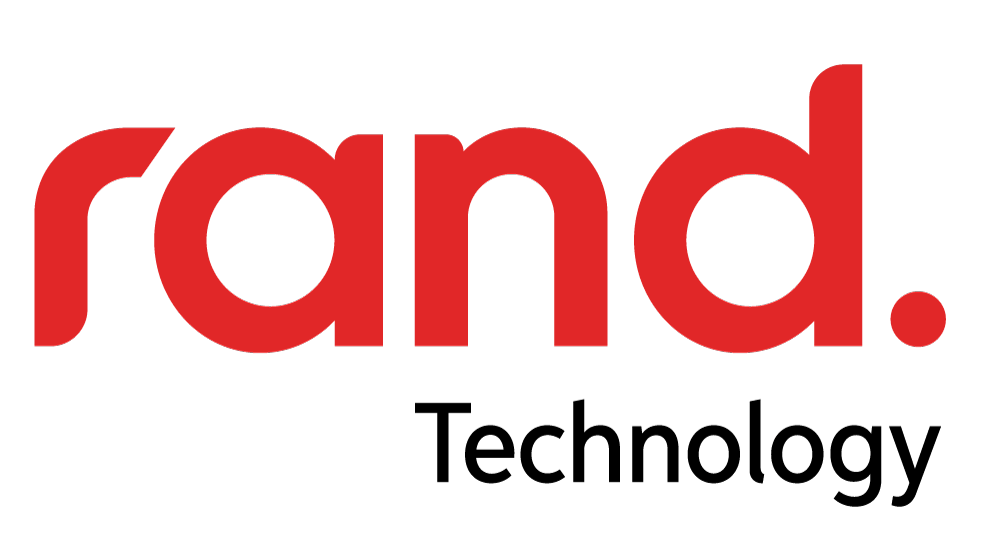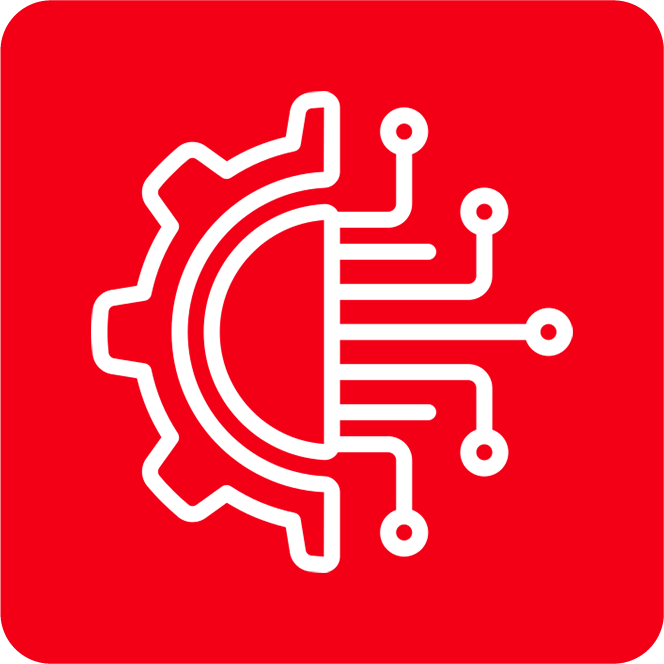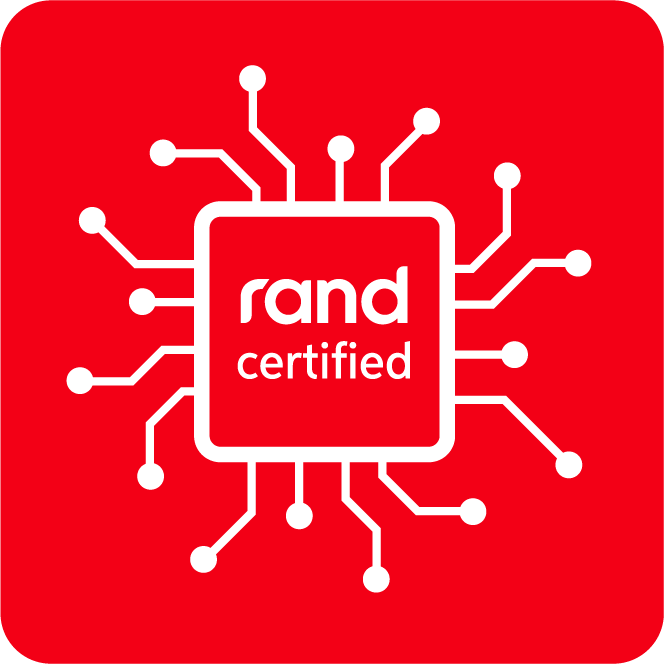Rand Technology is committed to demonstrating and supporting responsibility and active contribution toward our environment, employees, customers, suppliers, and our communities. We are committed to offering our employees a safe workplace where they are valued and supported in an environment of integrity and respect.
Rand Tennessee is certified to the R2 Standard for responsible recycling. We take pride in serving the communities and our customers with a solution for e-waste that protects the health of people and of the planet.
Asset resale and responsible recycling of used equipment is one of the many ways that Rand Technology supports contributing to our Global Environmental footprint.
LABOR
Rand Technology is committed to uphold the human rights of all employees and workers, and to treat them with dignity and respect as understood by the international community.
The labor standards are:
Freely Chosen Employment
Forced, bonded (including debt bondage) or indentured labor, involuntary or exploitative prison labor, slavery or trafficking of persons shall not be used. This includes transporting, harboring, recruiting, transferring or receiving persons by means of threat, force, coercion, abduction or fraud for labor or services. There shall be no unreasonable restrictions on workers’ freedom of movement in the facility in addition to unreasonable restrictions on entering or exiting company- provided facilities. As part of the hiring process, workers must be provided with a written employment agreement in their native language that contains a description of terms and conditions of employment prior to the worker departing from his or her country of origin and there shall be no substitution or change(s) allowed in the employment agreement upon arrival in the receiving country unless these changes are made to meet local law and provide equal or better terms.. All work must be voluntary and workers shall be free to leave work at any time or terminate their employment Employers and agents may not hold or otherwise destroy, conceal, confiscate or deny access by employees to their identity or immigration documents, such as government-issued identification, passports or work permits, unless such holdings are required by law. Workers shall not be required to pay employers’ or agents’ recruitment fees or other related fees for their employment. If any such fees are found to have been paid by workers, such fees shall be repaid to the worker.
Young Workers
Child labor is not to be used in any stage of manufacturing. The term “child” refers to any person under the age of 15, or under the age for completing compulsory education, or under the minimum age for employment in the country, whichever is greatest. The use of legitimate workplace learning programs, which comply with all laws and regulations, is supported. Workers under the age of 18 (Young Workers) shall not perform work that is likely to jeopardize their health or safety, including night shifts and overtime. Participant shall ensure proper management of student workers through proper maintenance of student records, rigorous due diligence of educational partners, and protection of students’ rights in accordance with applicable law and regulations. Participant shall provide appropriate support and training to all student workers. In the absence of local law, the wage rate for student workers, interns and apprentices shall be at least the same wage rate as other entry-level workers performing equal or similar tasks.
Working Hours
Studies of business practices clearly link worker strain to reduced productivity, increased turnover and increased injury and illness. . Working hours are not to exceed the maximum set by local law. Further, a workweek should not be more than 60 hours per week, including overtime, except in emergency or unusual situations. Workers shall be allowed at least one day off every seven days.
Wages and Benefits
Compensation paid to workers shall comply with all applicable wage laws, including those relating to minimum wages, overtime hours and legally mandated benefits. In compliance with local laws, workers shall be compensated for overtime at pay rates greater than regular hourly rates. Deductions from wages as a disciplinary measure shall not be permitted. For each pay period, workers shall be provided with a timely and understandable wage statement that includes sufficient information to verify accurate compensation for work performed. All use of temporary, dispatch and outsourced labor will be within the limits of the local law.
Humane Treatment
There is to be no harsh and inhumane treatment including any sexual harassment, sexual abuse, corporal punishment, mental or physical coercion or verbal abuse of workers; nor is there to be the threat of any such treatment. Disciplinary policies and procedures in support of these requirements are clearly defined and communicated to workers.
Non-Discrimination
Rand Technology is committed to a workforce free of harassment and unlawful discrimination. Companies shall not engage in discrimination based on race, color, age, gender, sexual orientation, gender identity and expression, ethnicity or national origin, disability, pregnancy, religion, political affiliation, union membership, covered veteran status, protected genetic information or marital status in hiring and employment practices such as wages, promotions, rewards, and access to training. Workers shall be provided with reasonable accommodation for religious practices. In addition, workers or potential workers should not be subjected to medical tests or physical exams that could be used in a discriminatory way.
Freedom of Association
In conformance with local law, Rand Technology shall respect the right of all workers to form and join trade unions of their own choosing, to bargain collectively and to engage in peaceful assembly as well as respect the right of workers to refrain from such activities. Workers and/or their representatives shall be able to openly communicate and share ideas and concerns with management regarding working conditions and management practices without fear of discrimination, reprisal, intimidation or harassment.
HEALTH and SAFETY
Rand Technology recognizes that in addition to minimizing the incidence of work-related injury and illness, a safe and healthy work environment enhances the quality of products and services, consistency of production and worker retention and morale. Rand Technology also recognizes that ongoing worker input and education is essential to identifying and solving health and safety issues in the workplace.
The health and safety standards are:
Occupational Safety
Worker potential for exposure to safety hazards are identified and assessed, and controlled through proper design, engineering and administrative controls, preventative maintenance and safe work procedures (including lockout/tagout), and ongoing safety training. Where hazards cannot be adequately controlled by these means, workers are to be provided with appropriate, well-maintained, personal protective equipment and educational materials about risks to them associated with these hazards. Reasonable steps must also be taken to remove pregnant women/nursing mothers from working condition with high hazards, remove or reduce any workplace health and safety risks to pregnant women and nursing mothers including those associated with their work assignments, as well as include reasonable accommodations for nursing mothers.
Emergency Preparedness
Potential emergency situations and events are identified and assessed, and their impact minimized by implementing emergency plans and response procedures including: emergency reporting, employee notification and evacuation procedures, worker training and drills, appropriate fire detection and suppression equipment, clear and unobstructed egress adequate exit facilities and recovery plans. Such plans and procedures focus on minimizing harm to life, the environment and property.
Occupational Injury and Illness
Procedures and systems are in place to prevent, manage, track and report occupational injury and illness including provisions to: encourage worker reporting; classify and record injury and illness cases; provide necessary medical treatment; investigate cases and implement corrective actions to eliminate their causes; and facilitate return of workers to work.
ENVIRONMENTAL
Rand Technology recognizes that environmental responsibility is integral to the Electronics Supply Chain. We are ISO 14001:2015 Certified for our distribution services and R2 and OSHAS Certified for our recovery and recycling operation in Clinton, TN.
The environmental standards are:
Environmental Permits and Reporting
All required environmental permits (e.g. discharge monitoring), approvals and registrations are maintained and kept current and their operational and reporting requirements are compliant.
Pollution Prevention and Resource Reduction
Emissions and discharges of pollutants and generation of waste are to be minimized or eliminated at the source or by practices such as adding pollution control equipment; modifying production, maintenance and facility processes; or by other means. The use of natural resources, including water, fossil fuels, minerals and virgin forest products, is to be conserved or by practices such as modifying production, maintenance and facility processes, materials substitution, re-use, conservation, recycling or other means.
Hazardous Substances
Chemicals and other materials posing a hazard to humans or the environment are to be identified, labelled and managed to ensure their safe handling, movement, storage, use, recycling or reuse and disposal.
Solid Waste
We are R2 certified for all recycling processes in Clinton TN and all other locations use R2 facilities for E-waste.
Materials Restrictions
Rand Technology adheres to all applicable laws, regulations and customer requirements regarding prohibition or restriction of specific substances in products and manufacturing, including labeling for recycling and disposal.
Energy Consumption and Greenhouse Gas Emissions
Energy consumption and all relevant Scopes 1 and 2 greenhouse gas emissions are to be tracked and documented, at the facility and/or corporate level. Rand Technology is committed to look for cost- effective methods to improve energy efficiency and to minimize their energy consumption and greenhouse gas emissions. Our Environmental objectives monitor and measure these results on a continual basis.
ETHICS
Business Integrity
The highest standards of integrity are to be upheld in all business interactions. Rand Technology has a zero tolerance policy, the company prohibits any and all forms of bribery, corruption, extortion and embezzlement.
No Improper Advantage
Bribes or other means of obtaining undue or improper advantage are not to be promised, offered, authorized, given or accepted. This prohibition covers promising, offering, authorizing, giving or accepting anything of value, either directly or indirectly through a third party, in order to obtain or retain business, direct business to any person, or otherwise gain an improper advantage. Monitoring and enforcement procedures has been implemented to ensure compliance with anti-corruption laws.
Disclosure of Information
All business dealings are transparently performed and accurately reflected on business books and records. Information regarding participant labor, health and safety, environmental practices, business activities, structure, financial situation and performance is to be disclosed in accordance with applicable regulations and prevailing industry practices. Falsification of records or misrepresentation of conditions or practices in the supply chain are unacceptable.
Intellectual Property
Intellectual property rights are to be respected; transfer of technology and know- how is to be done in a manner that protects intellectual property rights; and, customer and supplier information is to be safeguarded.
Fair Business, Advertising and Competition
Standards of fair business, advertising and competition are to be upheld.
Protection of Identity and Non-Retaliation
Programs that ensure the confidentiality, anonymity and protection of supplier and employee whistleblowers* are to be maintained, unless prohibited by law. Rand Technology has a communicated process for our personnel to be able to raise any concerns without fear of retaliation/
* Whistleblower definition: Any person who makes a disclosure about improper conduct by an employee or officer of a company, or by a public official or official body.
Responsible Sourcing of Minerals
Rand Technology Conflict Free Minerals Policy assures that the tantalum, tin, tungsten and gold in the products they distribute does not directly or indirectly finance or benefit armed groups that are perpetrators of serious human rights abuses in the Democratic Republic of the Congo or an adjoining country. Rand Technology shall exercise due diligence on the source and chain of custody of these minerals and make their due diligence measures available to customers upon customer request.
Privacy
Rand Technology is committed to protecting the reasonable privacy expectations of personal information of everyone they do business with, including suppliers, customers, consumers and employees. Rand Technology complies with privacy and information security laws and regulatory requirements when personal information is collected, stored, processed, transmitted, and shared.
MANAGEMENT SYSTEMS
The management system is designed to ensure: (a) compliance with applicable laws, regulations and customer requirements related to the participant’s operations and products; (b) conformance with ISO Standards and (c) identification and mitigation of operational risks. Rand Technology is Certified to ISO 9001:2015,ISO 14001:2015, and ANSI ESD S20.20.
The management system contains the following elements:







